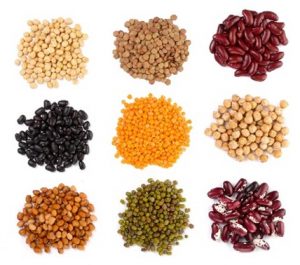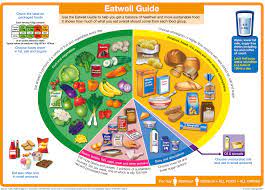Carbohydrates are often viewed unfavourably when talking about a “healthy” diet. But in truth, these macronutrients are vital for several key functions in the body. They are a primary source of energy and act as a fuel for our brains.
However, not all carbohydrates were created equally; refined sugary carbohydrates like cakes, biscuits and sugary drinks, do not provide as many health benefits as starchy high fibre carbohydrates such as wholegrain cereals or pulses. These are nutrient dense, for example lentils are packed full of B vitamins, magnesium, zinc and potassium.
There are so many myths and conflicting information concerning carbohydrates. Some common misconceptions are listed and explained below:
Myth 1: “Carbohydrates are bad for you”
One of the primary functions of carbohydrates is to act as an energy store. Through digestion in your body, they are broken down to glucose, which travels in the blood to our cells. This provides us with energy to go about our daily life!
Dietary fibre (a type of carbohydrate) is fundamental to our gut health. Soluble and insoluble fibre both pass through the body undigested, promoting good digestive health and acting as a fuel for friendly gut bacteria. Soluble fibre also slows the rise of our blood glucose levels, so we feel more energised for longer.
Some research also suggests that combining tryptophan-rich foods with carbohydrates, can help tryptophan reach the brain and promote a good night’s sleep. Tryptophan is an amino acid found in small amounts in protein rich foods, and in higher amounts in yogurt, milk and bananas. You could for example combine banana and yogurt, or salmon and lentils.
Myth 2: “Carbohydrates are fattening”
When choosing carbohydrates, the type and quality is key. Refined carbohydrates, such as white flour, white pasta and pastries are a risk factor for heart conditions or developing diabetes. High sugar foods are generally calorie dense and of little nutritional value. When eaten in excess, there is potential for weight gain, but this is a consequence of overeating and not from these foods alone.
However unprocessed, unrefined carbohydrates will have greater positive benefits, providing other nutrients. These include oats which are fibre rich and high in protein, or brown rice, quinoa and lentils.
Myth 3: “Cutting out carbohydrates leads to weight loss”
Recent research highlights the role of low carbohydrate diets like the Atkins or Ketogenic diet, in promoting short-term weight loss. However, in the long-term these diets reduce overall nutrient and fibre intake and so can damage the gut microbiome, leading to reduced overall health. Reducing carbohydrate intake should be balanced with an overall healthier lifestyle, such as increasing the amount of unprocessed whole foods, and reducing sugar intake.
It is possible to take a “whole body” approach and acknowledge the benefit of certain carbohydrate over others, without labelling them as “good” or “bad”. This does not serve any purpose except encourage feelings of guilt. Moderation overall is best approach in relation to carbohydrates and the focus should lie upon the quality and type, to ensure optimal gut health and long-lasting energy.
Restricting carbohydrates may serve for short-term weight loss but does not tend to be a long-term sustainable approach. The government’s Eatwell Guide recommends that just over a third of your diet should stem from starchy carbohydrate foods, and another third from fruit, vegetables, and salad. It is hard therefore, to deny the importance of unrefined and unprocessed carbohydrates in a healthy balanced diet.
starchy carbohydrate foods, and another third from fruit, vegetables, and salad. It is hard therefore, to deny the importance of unrefined and unprocessed carbohydrates in a healthy balanced diet.
I hope that this article has solved some of the questions with regards the ongoing debate on carbohydrates.
Written by Lara Bracher (student) and edited by Debra Williams (RD)
References
1: Crispim CA; Zimberg IZ; dos Reis BG; Diniz RM; Tufik S; de Mello MT . (2011). Relationship between food intake and sleep pattern in healthy individuals. Journal of Clinical Sleep Medicine.
2: Jacka, F. (2019). Brain changer; How diet can save your mental health. Yellow Kite.